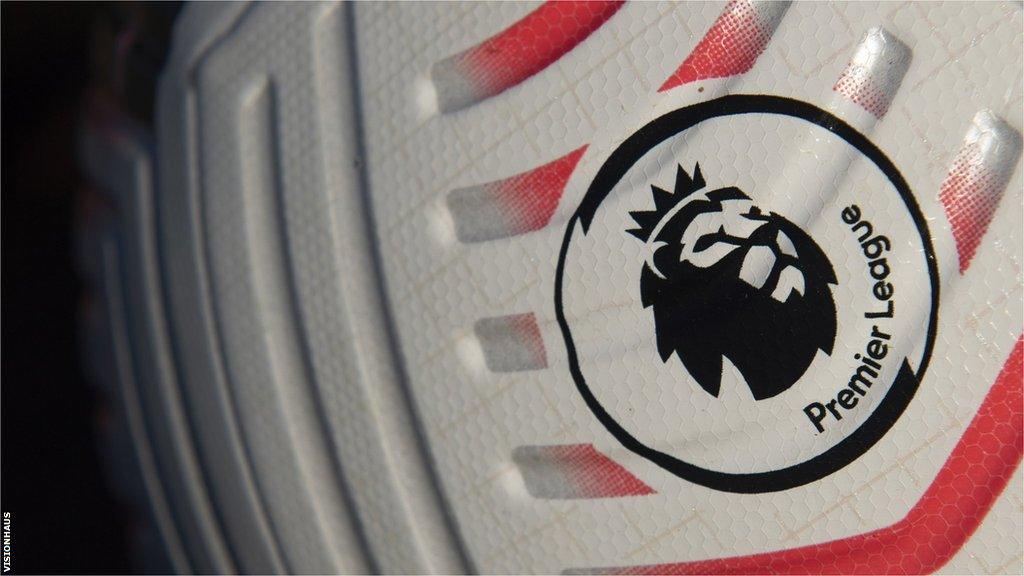Premier League tightens ownership rules to stop human rights abusers running a club
- Published

The Premier League's new owners' and directors' test rules were unanimously approved at a shareholders' meeting on Thursday
The Premier League has tightened its ownership rules to block anyone found to have committed human rights abuses from running a club.
Human rights abuses, as determined by the UK's Global Human Rights Sanctions Regulations, is a new "disqualifying event" in the English top-flight's owners' and directors' test.
Individuals subject to UK government sanctions will also be banned.
The changes to the test will be applied immediately.
The Premier League has also amended the list of criminal offences which would result in disqualification, including those which involve violence, corruption, fraud, tax evasion and hate crimes.
It also has new power to stop those wishing to become a director of a club if they are under investigation for conduct that would result in a disqualifying event if it is proven.
Human rights group Amnesty International said the move was "a step in the right direction", but warned the Premier League still risked becoming a "sportswashing toy" if the rules were not properly implemented.
Conservative MP Tracey Crouch, who was the UK's Sport Minister between 2017 and 2018, said the changes were "smoke and mirrors".
The new rules, which were unanimously approved at a shareholders' meeting on Thursday, come into force at a time when the ownership of a number of Premier League clubs is under scrutiny.
Qatari banker Sheikh Jassim is among the bidders for Manchester United and the prospect of Qatari investment in a Premier League club has raised concerns among human rights and LGBTQ+ groups.
The nation's treatment of migrant workers has been criticised, while homosexual acts are illegal in Qatar. Punishments include fines, prison sentences of up to seven years and even death by stoning.
However, BBC Sport understands Jassim does not believe the strengthened owners' and directors' test will have any impact on his offer to buy the 20-time English champions because he has made the bid as a private individual.
Earlier this month, Amnesty said the Premier League "needs to re-examine the assurances" it was given about potential Saudi state control of Newcastle United.
Newcastle's takeover by Saudi Arabia's Public Investment Fund (PIF) was approved after the Premier League received "legally binding assurances" the Saudi government would not have any control over the club.
Premier League chief executive Richard Masters told a committee of MPs on Tuesday he could not comment on whether his organisation was investigating who has control of Newcastle and whether it was re-examining its approval of the club's Saudi takeover.
Last year, Russian businessman Roman Abramovich sold Chelsea after being sanctioned by the UK for his alleged ties to Russian President Vladimir Putin, which he denied.
Introducing a more stringent owners' and directors' test will be among the powers held by English football's new independent regulator, which was confirmed by a government white paper last month.
"[The] Global Human Rights Sanctions Regulations are already the law of the land so this is nothing new," said Crouch in response to the Premier League's announcement.
"Improvement always welcome but still don't go as far as white paper."
Amnesty UK's economic affairs director Peter Frankental added: "It'll make little difference unless powerful individuals linked to serious human rights violations overseas are definitively barred from taking control of Premier League clubs and using them for state sportswashing.
"Would, for instance, a future bid involving Saudi or Qatari sovereign wealth funds be blocked by this rule change? It's far from clear that they would."

Our coverage of your Premier League club is bigger and better than ever before - follow your team and sign up for notifications in the BBC Sport app to make sure you never miss a moment
